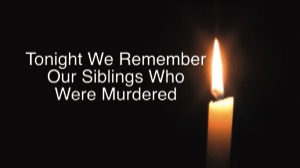
“She’s a bit TERFie (Trans Exclusionary).” “He doesn’t understand trans people.” “They are TERF-lite.” These are remarks I’ve heard, comments by LGB people about San Diego lesbians and gay men who have received awards and recognition for their outstanding service to our community. I can’t help but wonder if people were homophobic-lite, would our community still give them accolades?
Yet being just a “little” transphobic connects us to the murders of transgender people. So far this year, 25 people have been murdered in the U.S. because they are transgender. According to the Human Rights Campaign, trans women are four times more likely to be killed than cis women.
Most LGBQ people are somewhat familiar with transphobia as it plays out in the national spotlight.
For example, in pop culture, comedian Lil Duval, referring to trans woman Janet Mock, says he would “kill a sexual partner” if he found out she was trans.
In religion, Pope Francis says “teaching children about the nuances of gender and identity is against natural things.”
In feminism, Germaine Greer refuses to use our proper pronouns and calls us “some kind of ghastly parody”
In politics, Donald Trump tweets that trans people who are serving their country are a “burden” and “disruption” to the military.
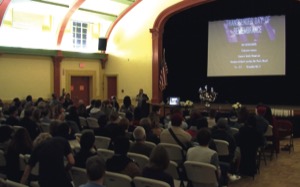
Such events are recognizable to us because they are routinely debated on social media. And it’s not to difficult for us to comprehend how this could lead to violence against trans people. But few of us feel any personal responsibility for the violence that is instigated against trans folk by these people.
And we certainly do not like to acknowledge that transphobia, even in subtle ways, exists in our local LGBTQ community. Unless you are trans, you’re not likely to connect the dots.
Over the years, I’ve interviewed numerous local trans people who have publicly expressed their dismay with the way they have been treated by our LGBQ siblings, most often in indirect ways, such as being ignored or not taken seriously. Or worse, being purposely misgendered or harassed at an LGBT venue or event.
For example, whenever I attend an event in our LGBT Center, I cannot help but notice the numerous pictures of lesbian and gay people covering the walls. These people are rightly celebrated as the shakers and movers of our community. But where are the trans people? Have we never done anything to warrant visibility?
At the 4th annual Trans Pride, I noticed the absence of LGBT organizations that should be clamoring to participate: resource groups, sports and recreation teams, community publications, arts and culture organizations and student and political groups. While some people might say these things are not that bad, they’re just a little “TERF-ie,” I contend they are a form of transphobia.
This transphobic-lite attitude on the part of many organizations and individuals might best be summed up by an older gay man who spoke up at Diversionary Theatre several months ago. Two trans actors had just finished delivering some of their lines as a promotion for a play. During a question and answer period the man confessed that in the past he and his gay friends routinely avoided trans people whenever and wherever they could. But coming into contact with these trans actors, he felt able to confront his own transphobia, and it seemed to me that he felt liberated.
The next time someone tells you that they know someone who is just a little transphobic, think about what they are really saying and consider how that seemingly innocuous statement sets the stage for murder.
Nov. 20 is the 15th Annual Transgender Day of Remembrance (TDOR) at The San Diego LGBT Center from 6-9 p.m. It’s the day when our trans and cis siblings come together to acknowledge the people who have been murdered because they are trans. It can also be a day when we come together and take personal responsibility for how we’re a part of a society that condones violence against trans people.







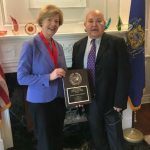

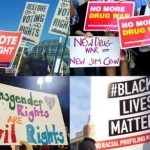
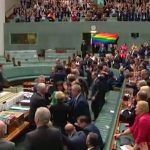





A very good article. Thank you for this.
Sometimes it is not that someone is “phobic” but rather it is veiled or even open hostility. For example, despite having transitioned and having proper documentation, I’ve been called “sir” by a lesbian when I was washing my hands at a local bar after going to the restroom, and was told that I should use the other restroom. I’ve been made fun of by gay men when I was just walking down the street in Hillcrest. I’ve even been castigated by other trans people, who for some reason were openly hostile towards me because my views might not have aligned perfectly with theirs. For instance, I’ve been called a racist by the “social justice” group because I’m white and I suggested an alternative venue for their “die in,” rather than the parad. And even Meredith probably remembers her open hostility and character assassination of me on her blog. So, as we approach TDOR, perhaps we could all learn to not only be less “phobic,” but also be less hostile toward one another. GLBs can be more understanding and accepting of trans people, especially when we’re just using the legally proper bathroom. And trans people can be less hostile towards other trans people, even when they disagree about various social issues.
This points out a problem with no real solution to solve. I understand what Meredith is saying but just saying we have a problem is not enough IMO